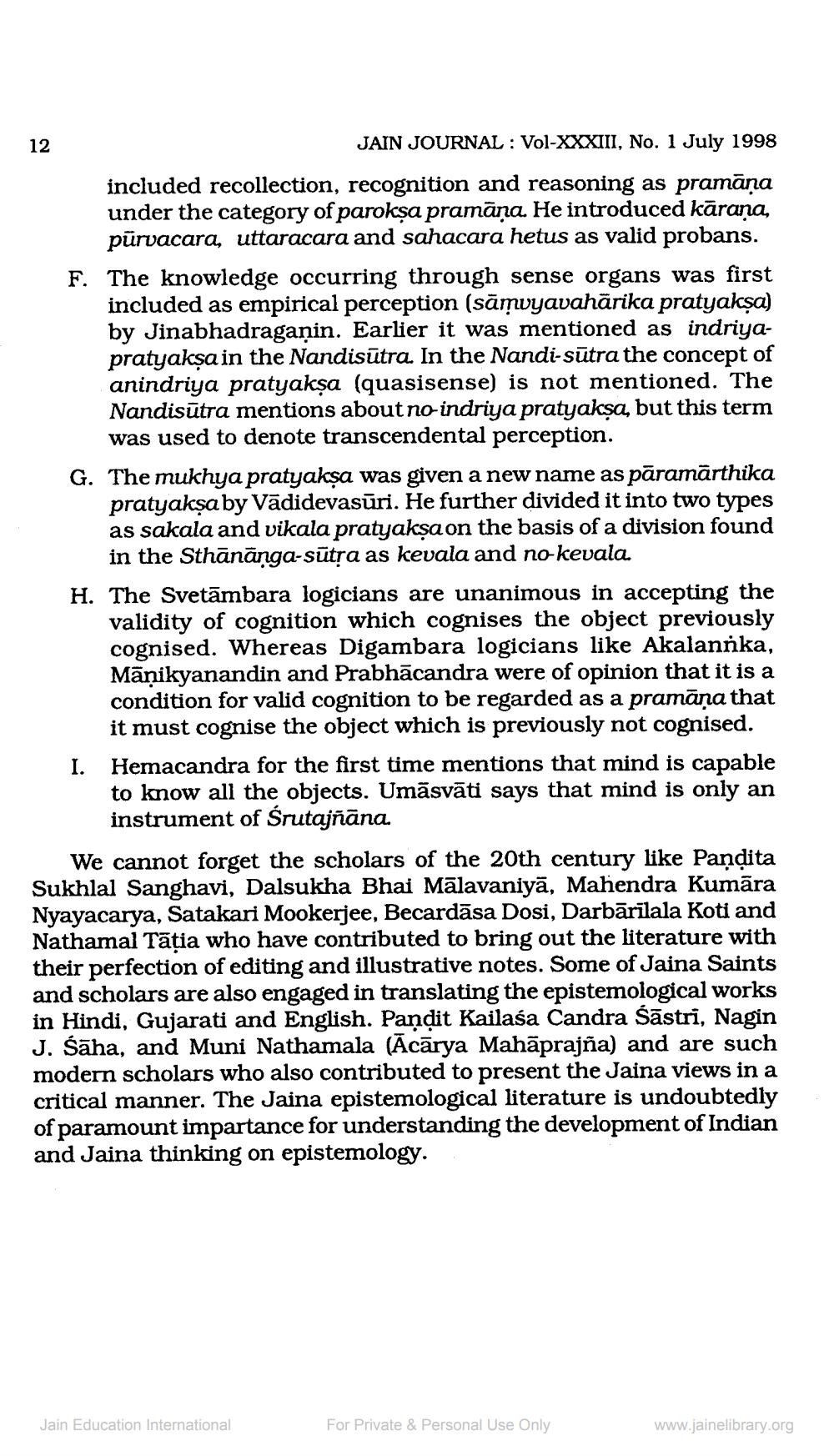________________
12
JAIN JOURNAL : Vol-XXXIII, No. 1 July 1998 included recollection, recognition and reasoning as pramāna under the category of paroksa pramāna He introduced kārana,
pūrvacara, uttaracara and sahacara hetus as valid probans. F. The knowledge occurring through sense organs was first
included as empirical perception (sāmvyavahārika pratyaksa) by Jinabhadraganin. Earlier it was mentioned as indriyapratyaksa in the Nandisūtra. In the Nandi-sūtra the concept of anindriya pratyakşa (quasisense) is not mentioned. The Nandisūtra mentions about no-indriya pratyakşa, but this term
was used to denote transcendental perception. G. The mukhya pratyaksa was given a new name as pāramarthika
pratyaksa by Vādidevasūri. He further divided it into two types as sakala and vikala pratyakşaon the basis of a division found
in the Sthānānga-sūtȚa as kevala and no-kevala H. The Svetāmbara logicians are unanimous in accepting the
validity of cognition which cognises the object previously cognised. Whereas Digambara logicians like Akalannk Mānikyanandin and Prabhācandra were of opinion that it is a condition for valid cognition to be regarded as a pramāna that
it must cognise the object which is previously not cognised. I. Hemacandra for the first time mentions that mind is capable
to know all the objects. Umāsvāti says that mind is only an
instrument of Śrutajñāna. We cannot forget the scholars of the 20th century like Pandita Sukhlal Sanghavi, Dalsukha Bhai Mālavaniyā, Mahendra Kumāra Nyayacarya, Satakari Mookerjee, Becardāsa Dosi, Darbārīlala Koti and Nathamal Tāția who have contributed to bring out the literature with their perfection of editing and illustrative notes. Some of Jaina Saints and scholars are also engaged in translating the epistemological works in Hindi, Gujarati and English. Pandit Kailasa Candra Šāstri, Nagin J. Sāha, and Muni Nathamala (Ācārya Mahāprajña) and are such modern scholars who also contributed to present the Jaina views in a critical manner. The Jaina epistemological literature is undoubtedly of paramount impartance for understanding the development of Indian and Jaina thinking on epistemology.
Jain Education International
For Private & Personal Use Only
www.jainelibrary.org




